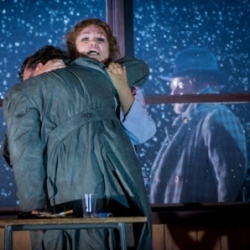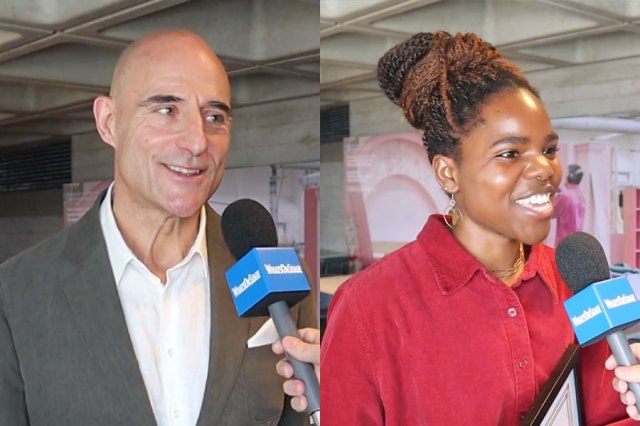The Girl of the Golden West (London Coliseum)
Puccini’s gold rush western returns to ENO after a 50-year absence

© Robert Workman
Prior to that moment the gifted but often frustrating director has a rockier ride. His view of the American west proves suitably wild, but in typical Jones style designer Miriam Buether‘s Polka saloon smacks of a Suffolk church hall circa 1958, complete with neon strips and tubular chairs. It’s sufficiently far from realism to jar, but not far enough to be saying anything.
Set in the Californian Gold Rush and adapted, like Madama Butterfly before it, from a play by David Belsaco, The Girl of the Golden West was prime beef for Puccini. The basic plot holds few surprises – soprano spurns baritone in favour of reformed bad-boy tenor – but his treatment of the subject, in particular the heroine Minnie’s complicated life and the presence of so many well-drawn minor characters, was fresh and bold.
'the score is loaded with sweeping refrains that burrow under the skin'
It’s a late opera that repays familiarity, so if you don’t know it, do go. Although low on set-piece arias, the score is loaded with sweeping refrains that burrow under the skin. The first act closes on five minutes of the most shudderingly beautiful harmonisation under the duet ‘Oh, non temete, nessuno ardirà!’, and you’re unlikely to hear it better played or conducted than here. Keri-Lynn Wilson makes a majestic house debut: she unwraps Puccini’s bejewelled orchestration in extended, expressive but never indulgent phrases, and the ENO Orchestra and Chorus respond to her like the world-class outfit they have become.

© Robert Workman
If Susan Bullock was a mite too Elektra-fied above the stave, with a few un-Italianate shrieks, her more controlled middle register remains a thing of beauty. She was a rootin’-tootin’ Minnie – jus’ a gal who cain’t say yes until Mister Johnson turns up – while tenor Peter Auty was in fine voice and every inch the Western hero, lock, stock and top notes.
In a strong ensemble cast the veteran Graham Clark stood out with an immaculately articulated account of Nick the bartender. American baritone Craig Colclough growled and threatened to good effect as the spurned sheriff, Jack Rance, although I suspect that a known quantity like Leigh Melrose, who sang the secondary role of Sonora, might have made a less generalised impression. (Presumably some trade agreement will ensure that the odd UK singer accompanies this production when it transfers to ENO’s co-producing house, Santa Fe Opera? Let’s hope so.)
Jones’s production alternates neat touches, like making Jake Wallace (George Humphreys) a blind balladeer, with clunky distractions that include a Keystone Cops runaround in the final act. However, the dramatic scene in Minnie’s house is staged with tremendous fervour and urgency.
As for the English translation, the jury’s out. While Kelley Rourke‘s rendering is a distinct improvement on her Elixir of Love, and while there’s pleasure to be had from the American idiom (with the added relief that ENO is finally shedding its attachment to cut-glass English), it’s still hard to accept a Puccinian delivery of "Would you care for a cookie?".












